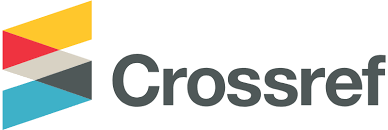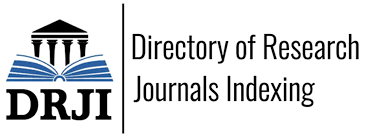Socialisation and character education in the Muslim world: exploring the role, impact, and necessity of indoctrination
DOI:
https://doi.org/10.18326/ijoresh.v3i1.76-100Keywords:
Socialisation, Education, indoctrination, Islamic education, Morality, EthicsAbstract
This investigation seeks to understand the importance of imparting character education to students across the educational spectrum. It examines the intricate nexus lying between shared boundaries that form the provision of education, socialisation, and indoctrination. It delves into the multifaceted elements of character education, emphasising the transmission of moral, social, religious, and ethical values. By analysing the role of educators as key influencers, the research underscores the challenges in fostering positive characteristics amidst the modern digital landscape and diverse cultural contexts, particularly in the Muslim world. The study employs a qualitative descriptive approach, utilising a narrative literature review to understand the subjective aspects of morality and social values and appreciate the importance of character education within religious and secular frameworks. There is no doubt that education has a profound impact on students, especially in their formative years, shaping them into moral, well-behaved, and intelligent members of society. It should equip students with the knowledge and character to thrive as contributing citizens, both locally and globally, in the digital age. This study found that teachers are somewhat reluctant to be accused of ‘indoctrination’, but this is inherently an integral element of education, and should therefore be embraced, acknowledged, and used for good: instilling critical thinking, along with a moral compass and the values needed to be upstanding and successful members of society.
References
Amalia, R. (2022). The Role of Islamic Education Teacher to Build Learners’ Character at MTs Assalafiyah Tegal City. Attarbiyah: Journal of Islamic Culture and Education, 7(1), 81–95.
Anderson, L. W., & Krathwohl, D. R. (2001). A Taxonomy for Learning, Teaching, and Assessing: A Revision of Bloom’s Taxonomy of Educational Objectives. Pearson
Bailey, R. (2006). Physical education and sport in schools: A review of benefits and outcomes. Journal of School Health, 76(8), 397-401. https://doi.org/10.1111/j.1746-1561.2006.00132.x
Cetrisnawati, C., Ardimen, A., Dasril, D., & Nursyamsi, N. (2023). The influence of group guidance on student learning attitudes. Journal of Islamic Education Students, 3(2), 72–82. https://doi.org/10.31958/jies.v3i2.10251
Cruess, S. R., Cruess, R. L., & Steinert, Y. (2008). Role modelling—making the most of a powerful teaching strategy. The BMJ, 336(7646), 718–721. https://doi.org/10.1136/bmj.39503.757847.be
Daratista, I., & Yusuf, M. (2021). Moral Education in Early Childhood in the Era of the Covid-19 Pandemic. Journal of Research in Islamic Education, 3(1), 51–60. https://doi.org/10.25217/jrie.v3i1.1622
Dewey, J. (1981). The Later Works, 1925-1953. SIU Press.
Duckworth, A. L., Peterson, C., Matthews, M. D., & Kelly, D. R. (2007). Grit: Perseverance and passion for long-term goals. Journal of Personality and Social Psychology, 92(6), 1087-1101. https://doi.org/10.1037/0022-3514.92.6.1087
Durlak, J. A., Weissberg, R. P., Dymnicki, A. B., Taylor, R. D., & Schellinger, K. B. (2011). The impact of enhancing students’ social and emotional learning: A meta-analysis of school-based universal interventions. Child Development, 82(1), 405-432. https://doi.org/10.1111/j.1467-8624.2010.01564.x
Ejderberg, C. (2021). Letter: Education vs. Indoctrination — Let’s clarify! Easton Courier. https://eastoncourier.news/2021/05/28/letter-education-vs-indoctrination-lets-clarify/
Farkhani, F., Elviandri, E., Dimyati, K., Absori, A., & Zuhri, M. (2022). Converging Islamic and religious norms in Indonesia’s state life plurality. Indonesian Journal of Islam and Muslim Societies, 12(2), 421–446. https://doi.org/10.18326/ijims.v12i2.421-446
Gay, G. (2018). Culturally responsive teaching: Theory, research, and practice. Teachers College Press.
Hábl, J. (2017). The problem of indoctrination, with a focus on moral education. Ethics & Bioethics, 7(3–4), 187–198. https://doi.org/10.1515/ebce-2017-0014
Hulawa, D. E. (2019). Al-zarnuji’s character concept in strengthening character education in indonesia. Jurnal Pendidikan Islam, 4(2), 25-40. https://doi.org/10.15575/jpi.v4i2.2395
Ibn Khaldûn, A. R. (2015). The Muqaddimah: An Introduction to History - Abridged Edition. Translated by Franz Rosenthal. Princeton University Press.
Jumiarti, D., Fadila, A., Dasril, D., & Yulitri, R. (2023). The effect of group tutoring to reduce student bullying behavior. Journal of Islamic Education Students, 3(2), 128–135. https://doi.org/10.31958/jies.v3i2.10366
Kington, A., Gates, P., & Sammons, P. (2013). Development of social relationships, interactions and behaviours in early education settings. Journal of Early Childhood Research, 11(3), 292–311. https://doi.org/10.1177/1476718x13492936
Lepherd, L. (2014). Spirituality: Everyone has it, but what is it? International Journal of Nursing Practice, 21(5), 566–574.
Levinson, M. (2012). No citizen left behind. Harvard University Press
Martin, C. (2023). Educational institutions and indoctrination. Educational Theory, 73(2), 204–222. https://doi.org/10.1111/edth.12574
Melhuish, E. C. (2004). A Literature Review of the Impact of Early Years Provision upon Young Children, with Emphasis Given to Children from Disadvantaged Backgrounds. Report to the Comptroller and Auditor General. National Audit Office.
Miles, M. B., & Huberman, M. A. (1994). Qualitative Data Analysis. Sage Publications.https://vivauniversity.files.wordpress.com/2013/11/milesandhuberman1994.pdf.
Ming-Yue, L., Chen, Q., & Zhou, Y. (2022). The influence of various role models on children’s pro-environmental behaviours. Frontiers in Psychology, 13. https://doi.org/10.3389/fpsyg.2022.873078
Miyake, A., & Kane, M. J. (2022). Toward a holistic approach to reducing academic procrastination with classroom interventions. Current Directions in Psychological Science, 31 (4), 291–304.
Muazza, M., Mukminin, A., Habibi, A., Sari, S. R., Haryanto, E., & Hidayat, M. (2019). Indonesian teachers’ perception on classroom management: A sequential exploratory study on the process and problems. Pegem Journal of Education and Instruction, 9(4), 1159–1182.
Muslima, H. (2021). Pengaruh bimbingan kelompok pendekatan muhasabah terhadap penyesuaian diri siswa SMP negeri 1 kecamatan akabiluru.
Narvaez, D. (2006). Integrative ethical education. In M. Killen & J. Smetana (Eds.), Handbook of moral development (pp. 703-733). Lawrence Erlbaum Associates Publishers.
Noddings, N. (2003). Happiness and education. Cambridge University Press.
Osborn, A. F., & Milbank, J. E. (1987). The effects of early education: A Report from the Child Health and Education Study.
Prameswari, S. A., & Suryani, I. (2023). The effectiveness of group guidance based on the value of Islamic Education in reducing academic procrastination behavior in Madrasah Aliyah. Nazhruna, 6(2), 226–239. https://doi.org/10.31538/nzh.v6i2.3178
Ratmiati, R., Syabri, H., Faziola, F., Bari, I. J. A., & Azmi, F. (2023). The use of social media as a platform for obtaining and disseminating Da’wah content by college students. Journal of Islamic Education Students, 3(2), 166–174. https://doi.org/10.31958/jies.v3i2.11511
Razaq, M. M. (2023). The Daegu Mosque Issue: A reflection of Islamophobia and challenges to religious freedom in South Korea. Dbpia. https://doi.org/10.22976/JHRS.2023.6.1.245
Stürmer, K., Könings, K. D., & Seidel, T. (2012). Declarative knowledge and professional vision in teacher education: Effect of courses in teaching and learning. British Journal of Educational Psychology, 83(3), 467–483. https://doi.org/10.1111/j.2044-8279.2012.02075.x
Susilo, I. B. & Pratamasari, A. (2018). How Did America Inspire Indonesian Revolution? Global & Strategis 12(2), 119–30.
Tamir, C., Connaughton, A., & Salazar, A. M. (2020). The Global God Divide People’s thoughts on whether belief in God is necessary to be moral vary by economic development, education and age. Pew Research Center.
Warmansyah, J., Amalina, A., & Febriyani, E. (2022). Self-Efficacy Guru Paud Dalam Penggunaan Teknologi Dengan Kesiapan Mengajar Secara Online. MAP Journal, 5(1). https://doi.org/10.15548/map.v4i1.4143
Warmansyah, J., Zalzabila, Z., Yuningsih, R., Sari, M., Helawati, V., & Sari, E. N. (2023). Educational Technology Applications for Enhancing Religious and Moral Values in early Childhood Development: a bibliometric analysis. at-Tarbiyah al-Mustamirrah, 4(2), 185-200.
Weingarten, R. (2023). Putting Fundamentals above Fear and Factionalism. American Federation of Teachers. https://www.aft.org/column/putting-fundamentals-above-fear-and-factionalism.
Woods, R. G., & Barrow, R. (1975). An introduction to philosophy of Education. Methuen
Wurdinger, S. D., & Carlson, J. A. (2009). Teaching for experiential learning: Five Approaches That Work. R&L Education.
Yunita, Y., Utami, D. T., Putra, A. A., Rohima, R., & Safitri, D. W. (2021). Pendampingan Praktek Ibadah Pada Masa Pandemi Covid-19 Bagi Anak Usia Dini di Desa Pulau Padang Kec. Singingi Kab. Kuantan Singingi. KREASI: Jurnal Pengabdian Masyarakat, 1(2), 32–37. http://jurnal.piaud.org/index.php/kreasi/article/view/276
Zakariya, D. M. (2020). Teori Pendidikan Karakter Menurut Al-Ghozali. Tadarus: Jurnal Pendidikan Islam. https://doi.org/10.30651/td.v9i1.5463
Zamakda Allison, S. (2021). The Implications of The Covid-19 Pandemic on Moroccan University Students. Journal of Social Political Sciences, 2(2), 115-123. https://doi.org/10.52166/jsps.v2i2.47
Downloads
Published
How to Cite
Issue
Section
License
Copyright
Authors who publish with Indonesian Journal of Religion, Spirituality, and Humanity agree to the following terms:
- Authors retain copyright and grant the journal right of first publication with the work simultaneously licensed under a Creative Commons Attribution License (CC BY-SA 4.0)that allows others to share the work with an acknowledgement of the work's authorship and initial publication in this journal.
- Authors have the right to enter into separate, additional contractual arrangements for the non-exclusive distribution of the journal's published version of the work (e.g., post it to an institutional repository or publish it in a book), with an acknowledgment of its initial publication in this journal.
- Authors are permitted and encouraged to post their work online (e.g., in institutional repositories or on their website) prior to and during the submission process, as it can lead to productive exchanges, as well as earlier and greater citation of published work.
Licensing
This work is licensed under a Creative Commons Attribution-ShareAlike 4.0 International License.








